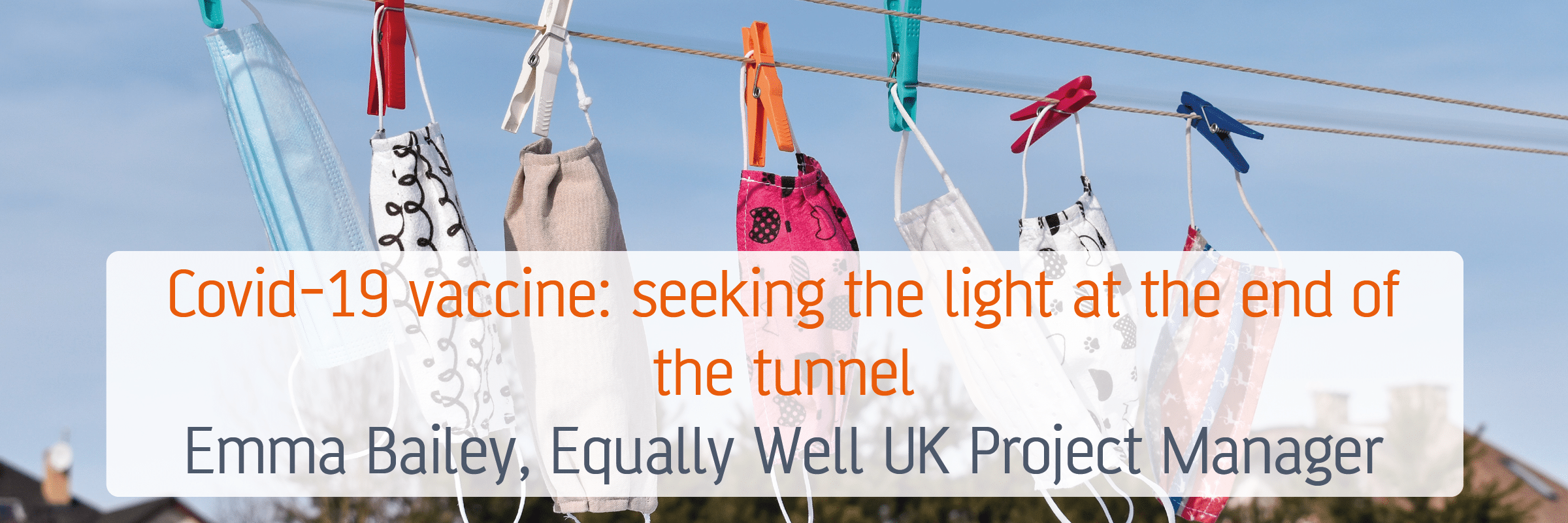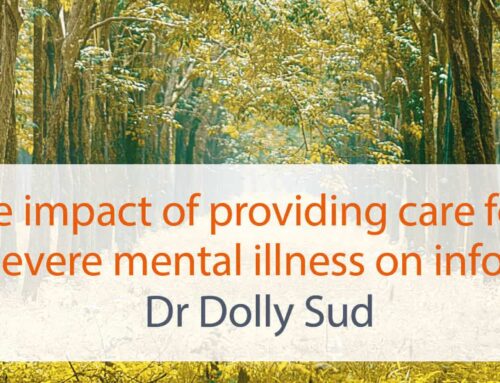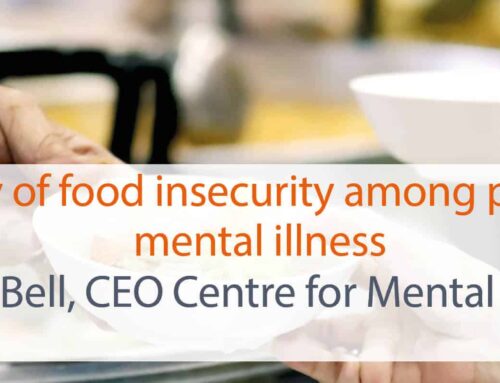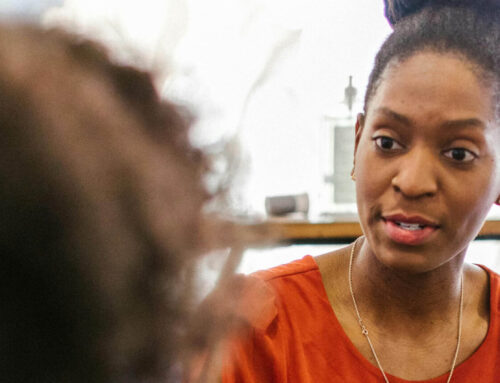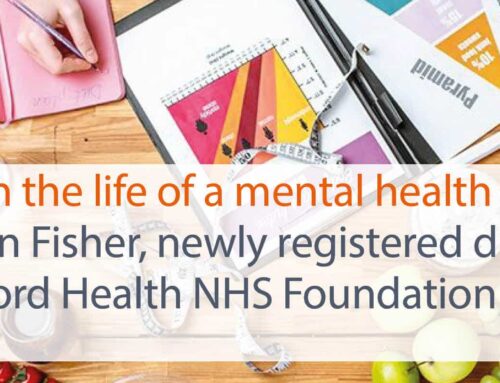
Emma Bailey, Project Manager for Equally Well UK at Centre for Mental Health
People with a diagnosis of severe mental illness too often have physical health conditions that are overshadowed by their mental health and as a result face a shorter life expectancy. While most of the focus on physical health inequalities for people with a mental illness has been on non-communicable diseases like diabetes and heart disease, there is also evidence of a greater risk of illness and mortality from infectious diseases, including Covid-19.
When we first heard about the Covid-19 vaccines, we, along with others, campaigned to make sure that people with a diagnosis of mental illness would be included in the priority list, alongside others facing a higher risk of severe illness and death from Coronavirus. This was recognised by The Joint Committee on Vaccination and Immunisation (JCVI), who included people with a severe mental illness in ‘group 6’ for the vaccine in England. Specifically, the JCVI stated that priority should be given to “individuals with schizophrenia or bipolar disorder, or any mental illness that causes severe functional impairment”.
When people in band 6 started to be offered the vaccine in England, we heard that some GPs struggled to include everyone who should have been given priority on their booking system. This was particularly the case for people diagnosed with a personality disorder, those with an eating disorder or others whose mental illness wasn’t classified as ‘severe’ and who were left out of their GP’s ‘severe mental illness’ register. We, along with others, received calls from people struggling to get vaccinated, many expressing great distress and frustration. We worked with NHS England and Improvement to try to fix this inequity, as a result of which GPs were issued with guidance to include people with a wider range of diagnoses within group 6.
This has exposed a major faultline in our system; one that needs attention to ensure people with a wider range of severe and enduring mental illness are recognised and supported in primary care. This is a vital piece of learning we must not ignore.
Throughout the pandemic, Equally Well UK has sought to ensure equal treatment for people with a mental illness. We have produced resources to help individuals, families and services, including on maintaining health during lockdown, getting flu vaccines and, more recently, what to expect from the Covid-19 vaccine programme. We have been pleased to hear back from some people who told us that our resources had helped them to get their vaccines. The resources we shared are all listed here.
We have also heard lots of positive experiences from people living with a mental illness who have had the vaccine. Many told us that they felt supported by staff at their GP surgery or vaccination centre to have their vaccine and feel confident about getting their second. Some have also shared that they have been shielding for the past year and so are looking forward to being able to go out and not feel as anxious thanks to the vaccine.
Here are some of the experiences people have kindly shared with us so far:
“My experience of the vaccine was overall positive. I first went to my GP explaining that I’d heard people with SMI were eligible, and in that initial appointment mentioned I’d come across some resources from various charities. I mentioned the SMI I had been diagnosed with and how the resources explicitly stated that this group of people were eligible… My GP was really understanding and agreed with me, but mentioned that as my SMI wasn’t the explicitly stated schizophrenia or bipolar from the JCVI guidelines, it might be difficult to get a vaccine as the ‘system’ might just not allow it… I had to wait about two weeks or so before I heard back, and it was positive – I was able to book a vaccine once they’d sent me a text and got one for the next day. I went with a carer as I didn’t feel able to go by myself, and the staff at the centre were all understanding – they didn’t question why I had someone with me who wasn’t being vaccinated that day. They made it feel really normal to have someone with you when usually it’s quite strict about people going in unnecessarily. They allowed us to sit together when normally the seats are separated for social distancing, and they made sure we had seats together throughout.” Anonymous person with a severe mental illness
“What helped me to decide on having the vaccine was when my faith leader in Birmingham Mosque shared his experience of having the vaccine. Astra Zeneca was the vaccine used in India, so I was pleased to be able to have had the same as my family there. I didn’t have any side effects apart from being a bit lethargic, but had a positive experience where they let me in for my mother and wife’s vaccine as a carer but also with the language barrier – I would suggest it to everyone.” Al Richardson, Expert by Experience member of Equally Well UK
“As a person living with mental illness, being contacted by phone was extremely useful – it meant that all I had to do was confirm a date and time, whereas electronic bookings leave scope for me personally to overthink and ultimately put off booking all together.
As I was called by my GP surgery they knew I am a single mum and had this in mind when they offered me a time where it should be quieter – this was beneficial for me both as a parent, and as an anxious person.
The overwhelming thought I had was that I felt comfortable to ask questions – often I perceive other people to have a different opinion of myself than I think they do, so the space to be able to ask even for a pen to complete the form was a good and safe feeling to have for me… We are all new at this – this covid jab wasn’t something we grew up expecting to happen at a certain age or time in our lives and this sense of we’re all as knowledgeable and as clueless as each other was quite comforting for me.
The staff remained professional at all times, but not rigid – and I feel more confident going for my second jab having a non-traumatic experience the first time!” Nikita, Expert by Experience member of Equally Well UK
“I was contacted by my GP initially to say that despite blood tests around my immune system and having anorexia I was not able to get the covid jab. Whilst I accepted this, I had been contacted a lot by people who felt they needed it and people with eating disorders who were nervous. People who felt they were undeserving.
The thing with eating disorders is they twist so much making you feel not worthy enough, not loved enough, not valid enough, and this was what I was seeing so much with the vaccine roll out and how some were having that chance and others not.
After calling back my GP with the guidance from Equally Well, they offered me a vaccine.
After getting vaccinated I was contacted by a number of others who had eating disorders who had not been offered one and for them they felt like a fraud, and not enough. When you already don’t feel good enough having to then lobby for yourself feels so wrong, and pushes further the issues around stigma and eating disorders, issues that need to be tackled.” Hope Virgo, Author and Mental Health Campaigner
If you have not yet had your vaccine and you have a severe mental illness, you should be entitled to it. Every adult will be entitled to the vaccine when their age group is eligible, regardless of whether they have a long-term condition or not.
Please click here to find out more from NHS England and Improvement on the Covid-19 vaccine.
Our blogs share the experience and views of the authors; these views are not necessarily those of Equally Well UK

